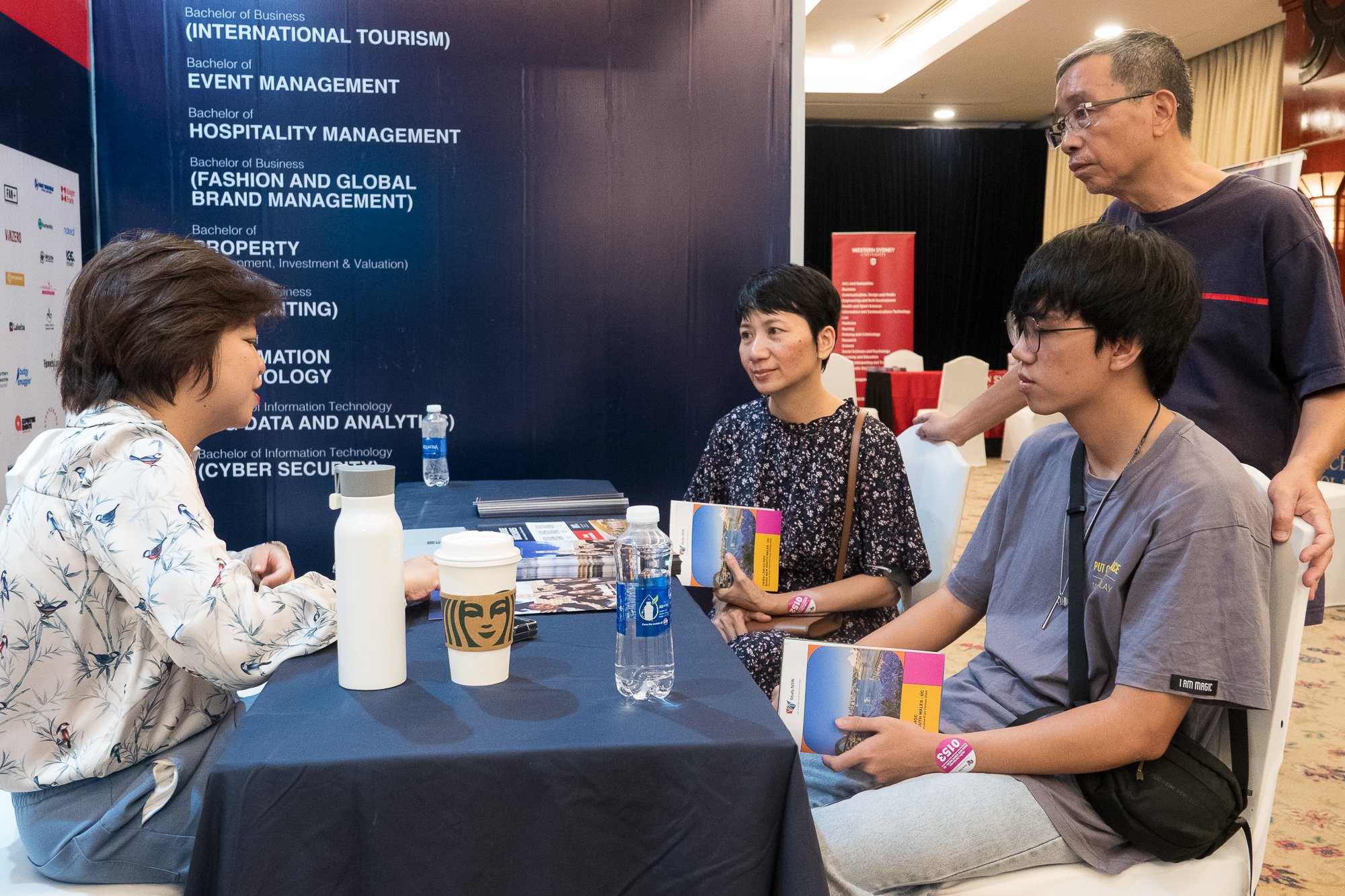
Parents and students learn about opportunities to study abroad in Australia at a recently held seminar.
The Australian government recently proposed to limit the number of new international students enrolled in educational institutions from 2025 to 270,000, with 145,000 in public universities and 95,000 in vocational schools, and is awaiting approval by the country's parliament. In early September, during a hearing with the Australian Senate, the federal government also officially announced the enrollment quota for public universities, with different increases and decreases compared to the previous fiscal year.
If passed, the bill will officially take effect from the beginning of 2025. In that context, how are schools in Australia responding to the admission season for the February term next year?
A school stopped recruiting vocational students.
Speaking to Thanh Nien at the New South Wales (Australia) study abroad exhibition on September 14, Hunter Trinh, Vietnam market recruitment manager of TAFE NSW - Australia's largest public vocational training system, said that the situation has been "very tense" recently as only a few percent of Vietnamese students passed the vocational study visa at the school in March. That is the reason why the school decided to stop recruiting vocational students in Vietnam until further notice.
"Currently, we are focusing on university education, especially for the upcoming February term. In Australia, even though you study a bachelor's degree at a vocational school, when you graduate, your degree is equivalent to that of a university graduate. However, our advantage is that we create conditions for students to do many internships, lasting 1-2 years depending on the major. Not to mention, the school's entry requirements are not high and tuition fees are affordable, from 4,000-12,000 AUD/year," said Mr. Hunter.
The manager also noted that for university level, the visa acceptance rate is still high, over 80%, not related to vocational training. TAFE NSW is also currently offering 15% tuition scholarships for Vietnamese international students, who only need to write an essay to answer some questions from the school about their future plans and have an average score of 7 or higher. The number of scholarships is quite large and the school has never run out of scholarships, Mr. Hunter added.
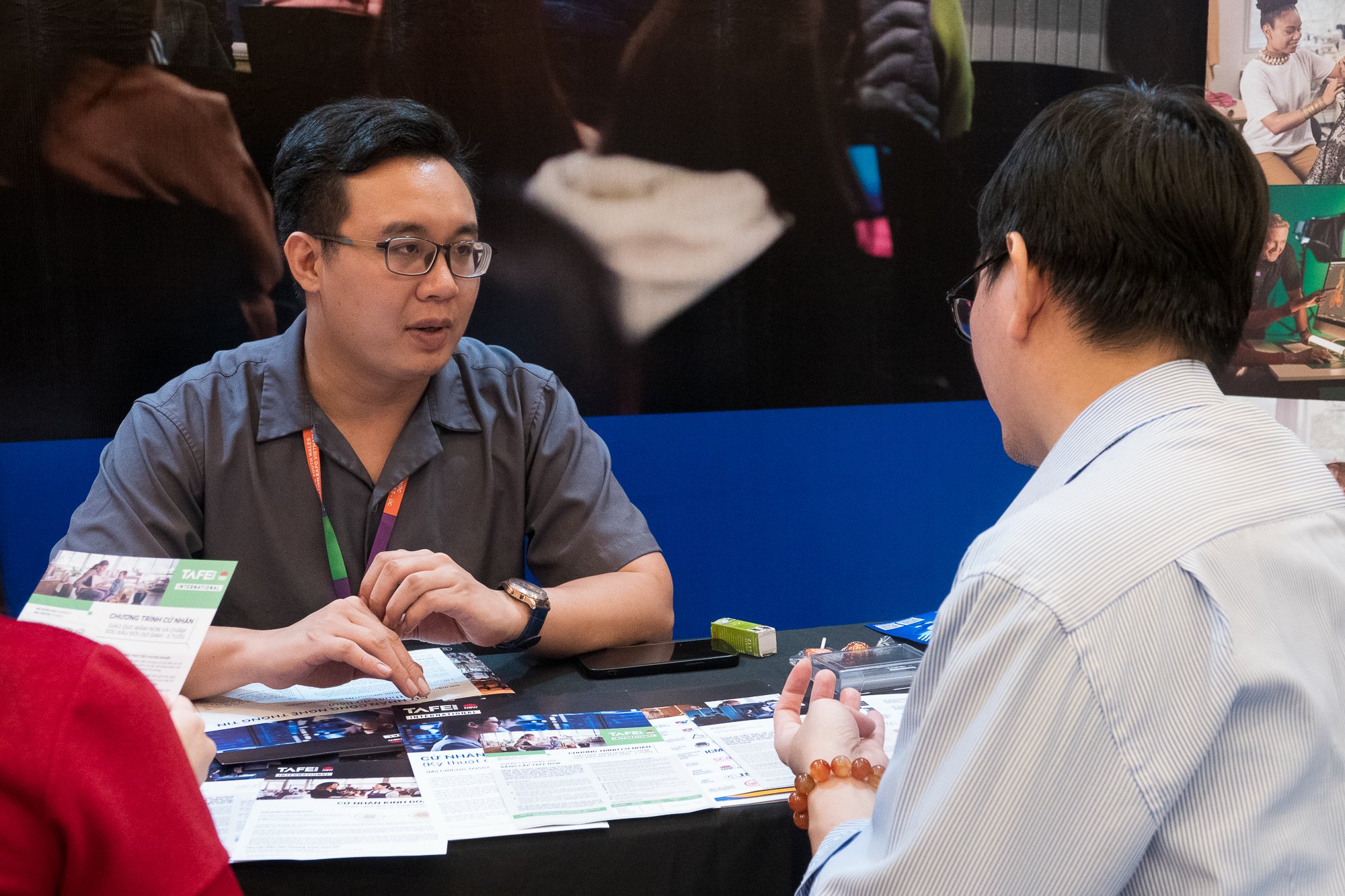
Mr. Hunter Trinh said that TAFE NSW is currently only recruiting Vietnamese university students, while vocational students are temporarily suspending new recruitment.
At Macquarie University, which currently has more than 1,500 Vietnamese international students, the enrollment plan is expected to remain the same, according to Ms. Pham Tra My, Vietnam Market Manager. That is because the quota that the Australian government has allocated to the school is expected to be similar to the previous fiscal year. "We are still recruiting Vietnamese students directly from 113 specialized and key schools with many scholarships worth 10,000 AUD and allowing accumulation," Ms. My informed.
"Maintaining admission and scholarship policies is a positive indicator that we will not have any changes in the near future. Because, although we are an educational institution, we are still essentially a business entity, so we need to ensure stable operations. If there are changes in admission, related issues such as financial support will certainly have to be readjusted," the female manager commented.
Another point worth noting is that the Australian Ministry of Education has always classified universities in a country into three levels (section 1, 2 and 3). Previously, Macquarie University only accepted direct admission of master's students from section 1 schools - the highest level and mainly only national universities in Vietnam. But since last year, the school has expanded to section 2, which means direct admission of students from most universities in our country, Ms. My said.
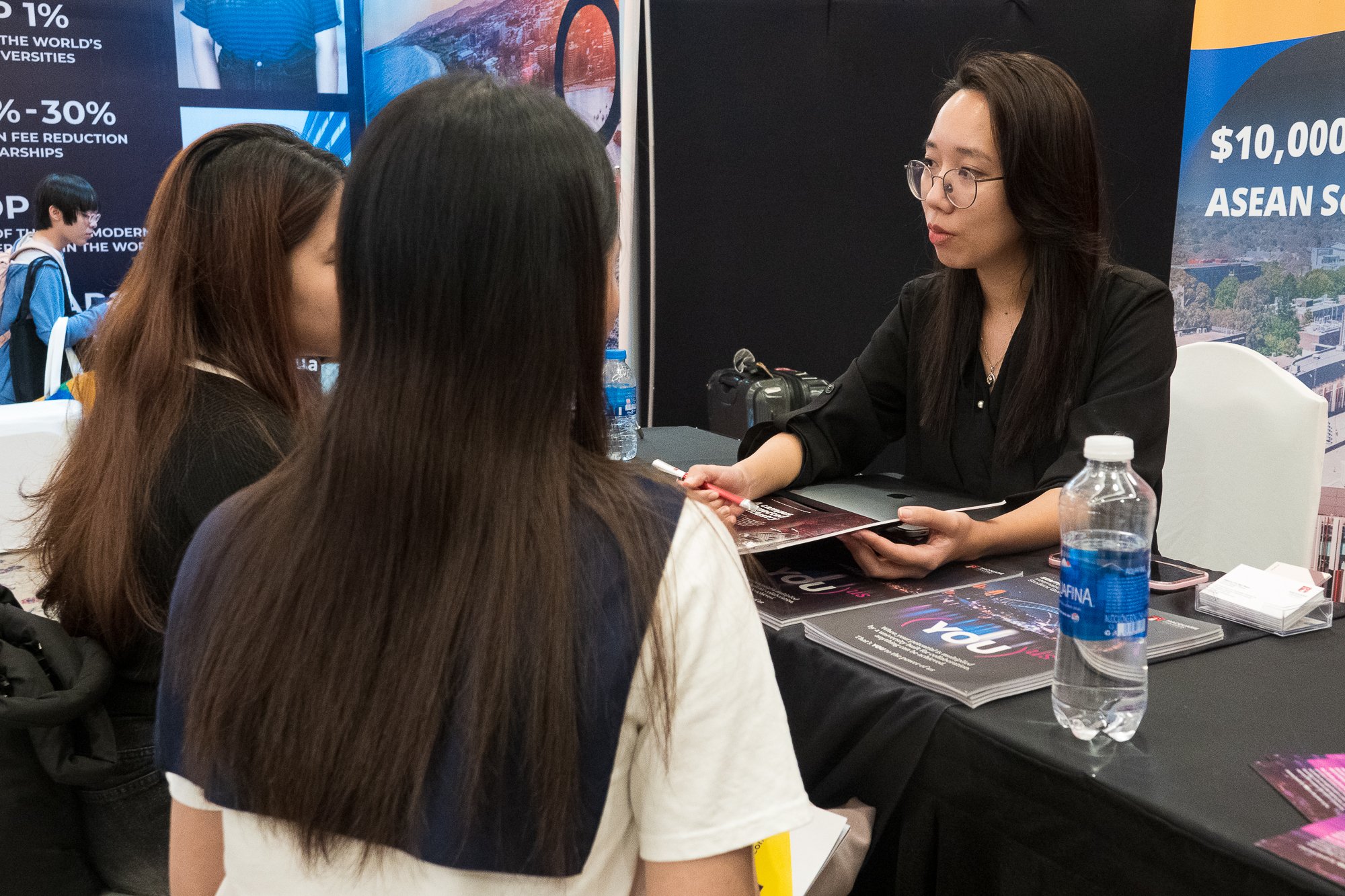
According to Ms. Pham Tra My, changes in admission policies (if any) will affect financial support policies, especially scholarships.
Guarantee the rights of admitted students
In 2025, the University of New South Wales is one of the schools that will have its new enrollment quota reduced according to the proposed policy. However, Ms. Ngo Thanh Thao, the school's Mekong Region Manager, said that the school still maintains its enrollment policy for Vietnamese students to ensure diversity of nationalities in the school environment. On the other hand, the school has up to 3 admission periods, students who cannot attend this period can postpone to the next period, so they will not be affected too much by the limit.
"The goal of the enrollment cap is to facilitate the movement of international students to areas with fewer international students, thereby reducing the burden on central areas like Sydney. Therefore, I think this policy only lasts for a short time and only affects the decision to choose a location in Australia, not the way schools recruit students in the Vietnamese market," Ms. Thao analyzed.
Regarding scholarship policy, the University of New South Wales has not changed, with packages ranging from 15-100% of tuition fees. For 100% scholarships, candidates are evaluated based on the following criteria: academic achievement, extracurricular activities, leadership ability, awards and essays. "When advising students, I see that the thing they worry about the most is the career story," Ms. Thao added.
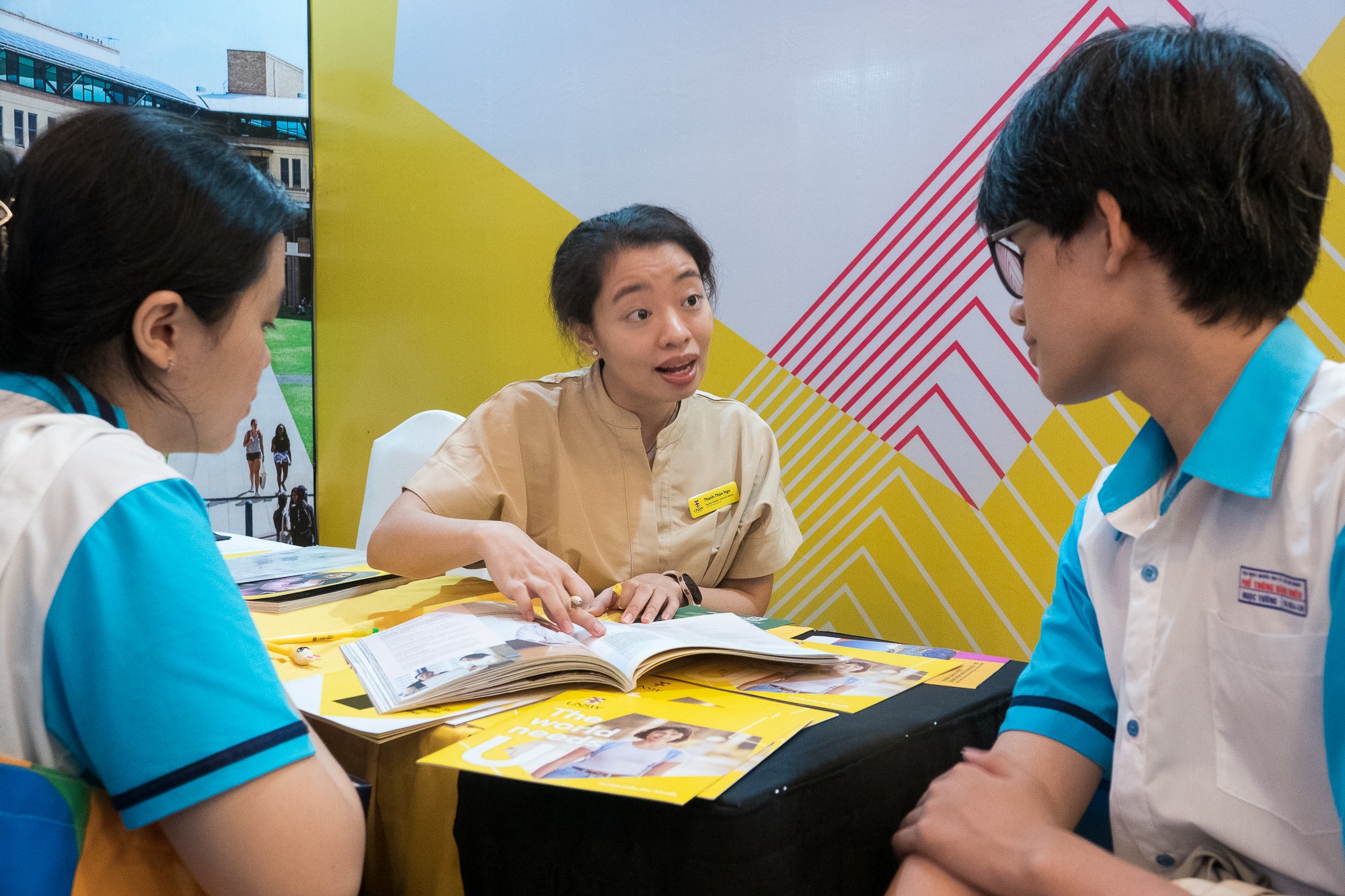
Ms. Ngo Thanh Thao shared that Vietnamese students are not worried about the Australian government's enrollment cap, the most important issue is still choosing a major and choosing a school.
Another institution that has seen its quota reduced is the Australian National University. Andy Pham, the university’s senior manager for the Mekong region, said that upon receiving the news, the university immediately made a commitment not to cancel any offers that had been sent to international students for 2025. Students who have already received offers can start studying at the university next year without being affected by the cap, according to Andy.
"Currently, the Australian National University and the Ministry of Education are still working to finalize the final number for the school. My advice is that you should accept admission as soon as you receive an invitation letter so as not to miss the opportunity," Mr. Andy shared, adding that in the group of 8 leading universities (Go8), besides the University of New South Wales and the Australian National University, the University of Sydney and the University of Melbourne also have reduced new recruitment targets.
The enrollment restriction excludes some groups, including high school students. But in New South Wales, Mr. Ha Bang, Director of Business Development for the Chinese market, DE International Office in Shanghai (China), said that the state Department of Education is still stopping accepting Vietnamese students from four provinces to study at public high schools: Quang Binh , Nghe An, Ha Tinh and Quang Ninh.
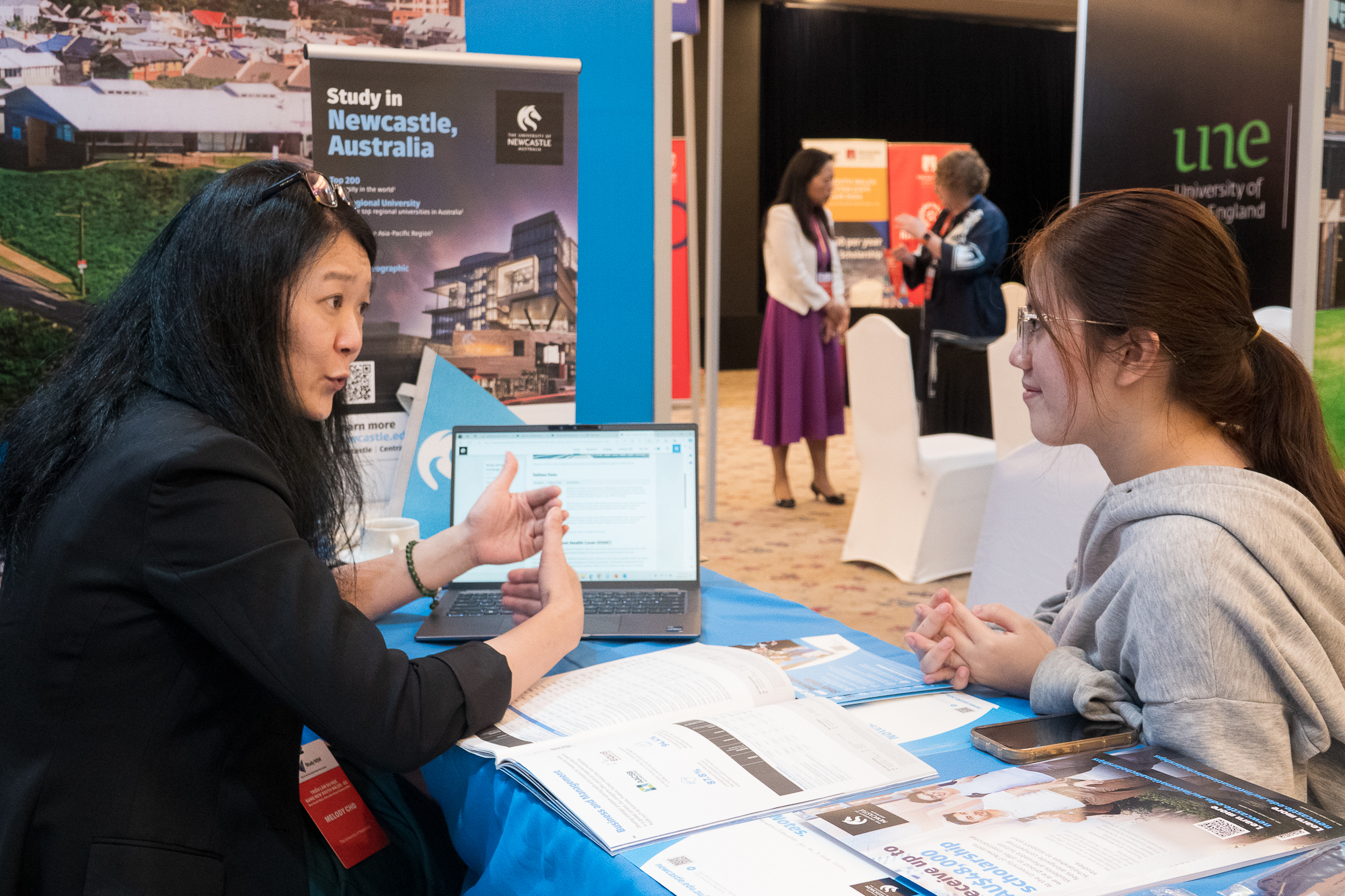
Students listen to advice from Australian university representatives
However, the above regulation does not reduce the attraction. According to Mr. Ha, Vietnam ranks third in the number of international high school students in public schools in New South Wales. "The main reason is that parents want to create conditions for their children to be exposed to the international environment early, while increasing the chances of being admitted to top Australian universities," Mr. Ha explained, adding that the tuition fee is 15,000-19,000 AUD/year, the cost of living with a local family is about 450 AUD/week.
According to statistics from the Australian Department of Education, by May 2024, there were 704,931 international students studying courses in Australia. Of these, 33,765 were Vietnamese, ranking 5th. At leading universities, the number of Vietnamese students and researchers accounts for a significant proportion, about 600 at the University of Melbourne, 400 at the University of Adelaide, or in the top 10 in terms of the number of international students at the University of Queensland...
Source: https://thanhnien.vn/uc-du-kien-ap-tran-tuyen-sinh-cac-truong-co-han-che-nhan-du-hoc-sinh-viet-185240915141910692.htm



![[Photo] Keep your warehouse safe in all situations](https://vphoto.vietnam.vn/thumb/1200x675/vietnam/resource/IMAGE/2025/10/1/3eb4eceafe68497989865e7faa4e4d0e)
![[Photo] President of the Cuban National Assembly visits President Ho Chi Minh's Mausoleum](https://vphoto.vietnam.vn/thumb/1200x675/vietnam/resource/IMAGE/2025/10/1/39f1142310fc4dae9e3de4fcc9ac2ed0)

![[Photo] Hanoi morning of October 1: Prolonged flooding, people wade to work](https://vphoto.vietnam.vn/thumb/1200x675/vietnam/resource/IMAGE/2025/10/1/189be28938e3493fa26b2938efa2059e)

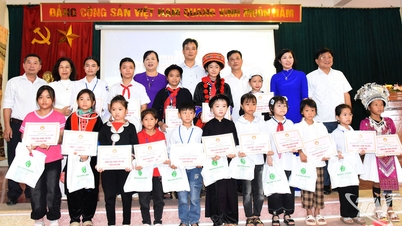





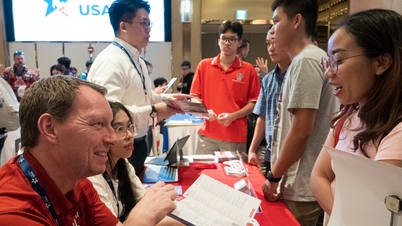
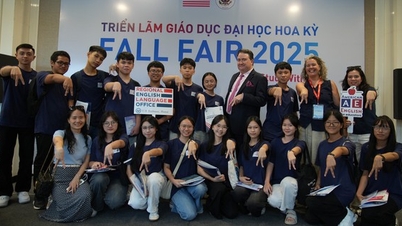

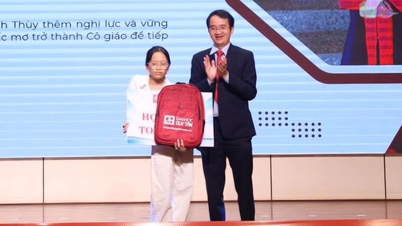
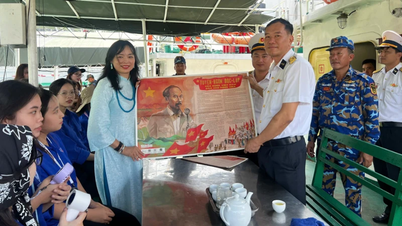

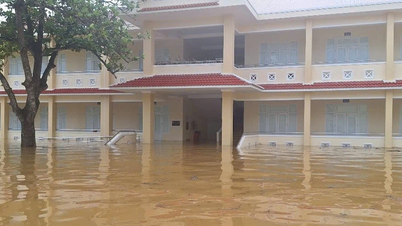


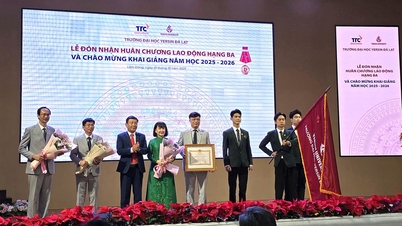
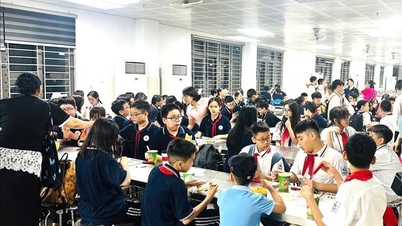

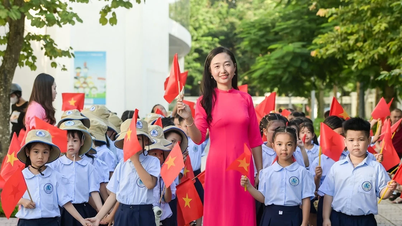




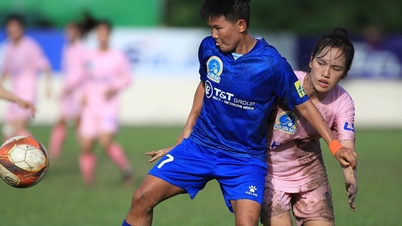

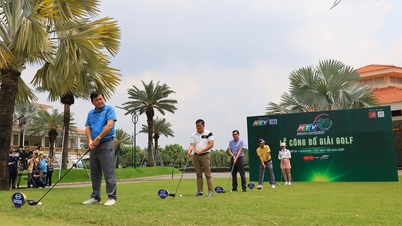
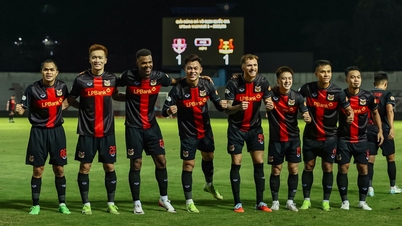
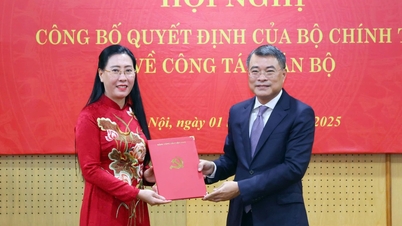
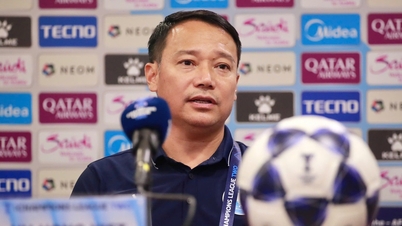




































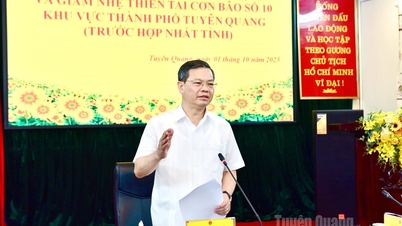



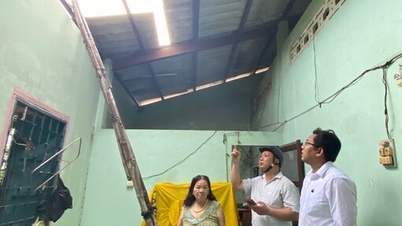



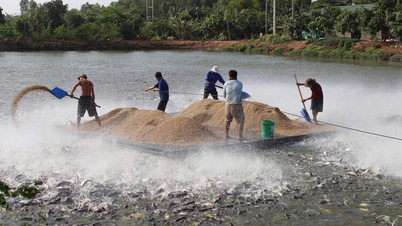

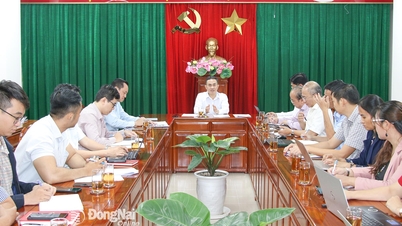













Comment (0)